Swiss immigration quotas: where do we stand?
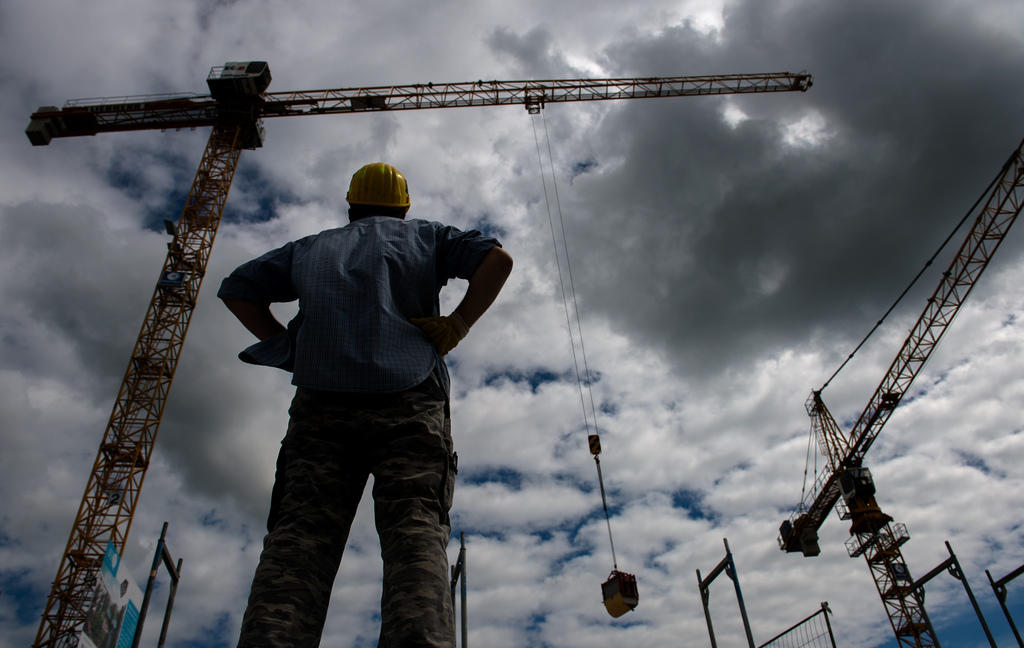
On February 9, 2017, a deadline expired to implement immigration quotas approved in a nationwide vote three years earlier. With a solution still a long way off, we look at what might happen next.
Never before has Switzerland’s system of direct democracy presented such a dilemma. Since 2014, politicians have tried to reconcile the seemingly irreconcilable: how to limit the number of EU workers entering Switzerland without breaching the free movement of people accord with the 28-country bloc. Officials in Brussels have said the agreement cannot be renegotiated.
How did we get here?
On February 9, 2014, 50.3% of voters approved an initiative by the rightwing Swiss People’s Party against immigration which specified that Switzerland should “autonomously manage the immigration of foreigners” by reintroducing “ceilings and annual quotas”.
From the moment the initiative was launched, it was clear that it violated Switzerland’s free movement agreement with the EU. Switzerland, however, does not have a constitutional court or a federal supervisory mechanism for assessing initiatives. While the left and economic circles warned of the clash, it was played down – and even refuted – by the People’s Party.
Six laws in all
In fact, when we talk about a review of the law, it’s really “laws”. If it largely relates to legislation of foreigners, the current version of the draftExternal link would also involve changes to five other laws, such as asylum, labour and unemployment.
Why the February 2017 deadline?
Initiatives approved by voters involve a change to the constitution. But in order for this amendment to take effect, it must be translated into law. This can take time. Maternity insurance, for instance, was enshrined in the constitution in 1945 but only became a reality in 2004. Another extreme example is the Alpine Initiative, which calls for alpine transport to shift from road to rail. Accepted in 1994, environmentalists are still waiting for it to be implemented, 24 years on.
To ensure that things move quickly, the People’s Party’s initiative (now Article 121a of the constitution) explicitly required a modification of the law on foreigners within three years. Has the deadline been met? Formally, no.
In its December 2016 session, parliament reached a consensus on a solution for legislation. But this has been countered by a new referendum bid, for which supporters have until April 7 to collect 50,000 signatures. They say the law approved by parliament pretends to apply a constitutional amendment but in fact it does not do so. Until we know whether this referendum bid is successful or not, nothing changes.
What can be done to stop immigration?
That’s the dilemma that Switzerland has faced for the past three years. Faced with Brussels’ refusal to negotiate the free movement of people accord, the Swiss parliament opted in favour of a “light” national preference solution that Europe would find digestible instead of “ceilings and annual quotas”. This says Switzerland must do everything it can to tap the local labour force, for example advertising jobs at regional job centres, before recruiting outside Switzerland. If these actions are insufficient, the government can resort to more restrictive measures, but without quotas. But this option only partially conforms to the constitutional article approved by voters.
So has the will of the people been respected?
Yes and no, depending on your political leanings. Swiss citizens have voted in favour of the free movement of people accord several times. That’s probably why parliament essentially decided to support Switzerland’s approach of bilateral accords with the EU, instead of introducing strict anti-immigration measures. Parliament sees the national preference solution as a classic Swiss compromise.
The People’s Party says voters have been betrayed, but it has given up on the idea of launching a counter-referendum attempt.
Do voters get to have another say on the issue?
Yes, but things will become much more complicated from now on.
First, on April 7, we will find out if there will be another referendum on the issue.
Then, another element is also playing out. Voters will also have to decide on an initiative dubbed “Out of the dead end” and a government-backed alternative – both on the subject of implementing the immigration vote. The former was started by a group of intellectuals. The initiative text of “Let’s get out of the impasse! Let’s renounce the re-establishment of immigration quotas” is shorter than its title. There’s just one sentence: “Article 121a is repealed”.
So can we expect Switzerland to introduce immigration curbs or not?
Hard to say. The earliest the issue will go to a vote again will be September 2017, be it for the referendum or for the “Out of the dead end” initiative. There are a range of possibilities from then on. The only certainty is that we are going to keep discussing Switzerland’s relationship with the EU. Especially as the People’s Party has also threatened an initiative against free movement.
A new law, and fast!
The practice of setting a deadline for implementation of a vote is almost as old as the popular initiative itself. Of the 22 that have been accepted since 1893 (of 208 subjected to voting), a third set out deadlines.
When it was a matter of banning absinthe in 1908 or declaring August 1 as National Day in 1994, the work of legislators was relatively simple. A much more complicated case of limiting the number of second homes (the so-called Lex Weber initiative accepted in 2012) was however translated into federal and cantonal laws within the two-year deadline. The Alpine Initiative (1994), on the other hand, set a ten-year deadline and still has not been implemented.
Translated from French by Jessica Dacey

In compliance with the JTI standards
More: SWI swissinfo.ch certified by the Journalism Trust Initiative





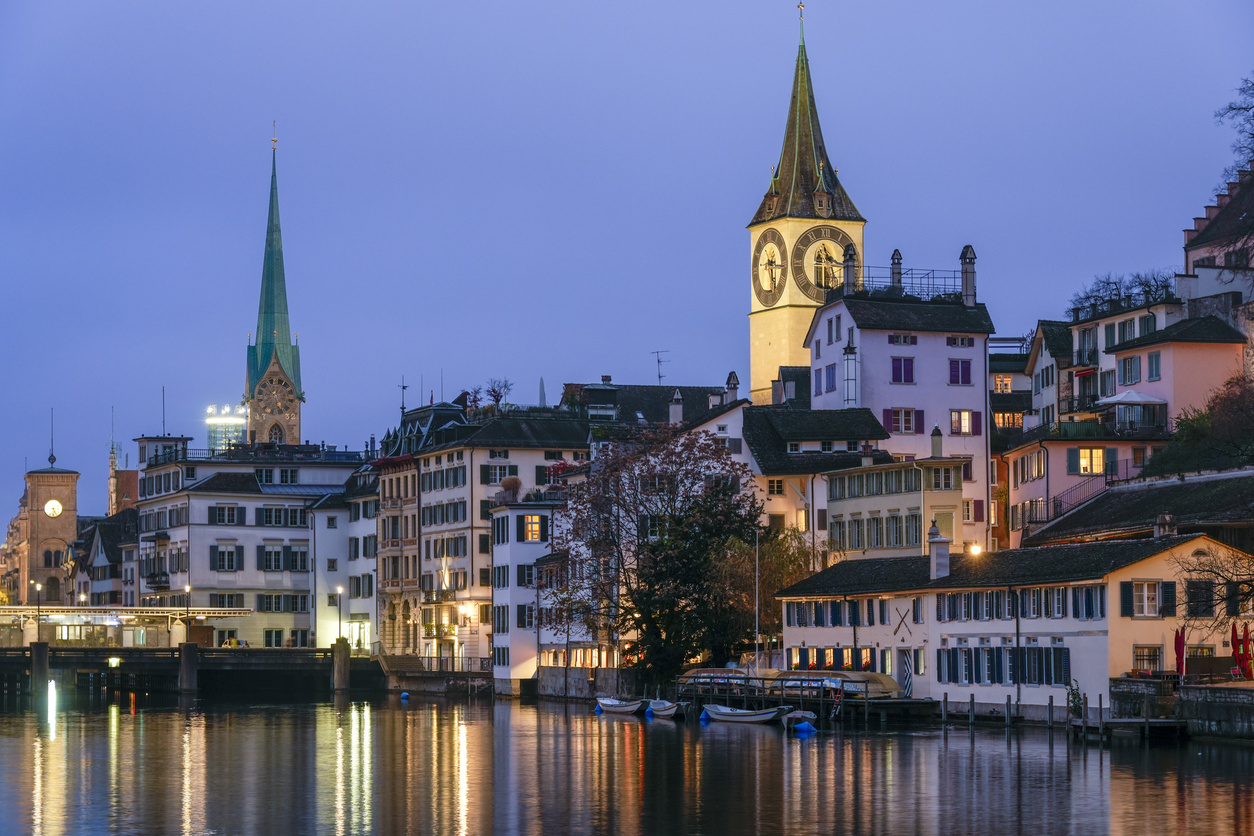








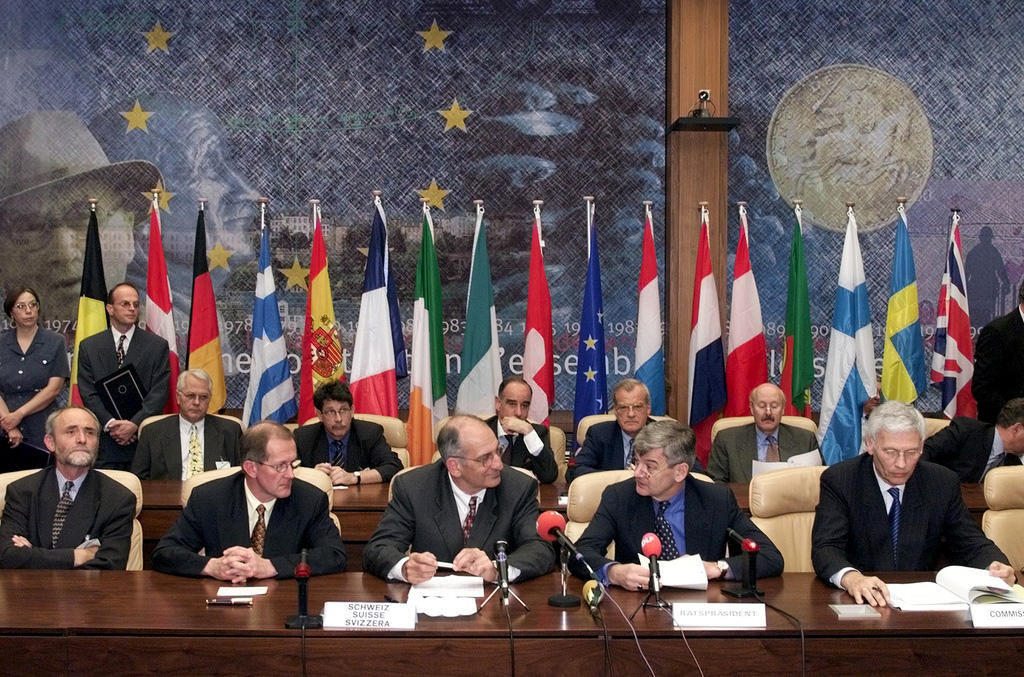

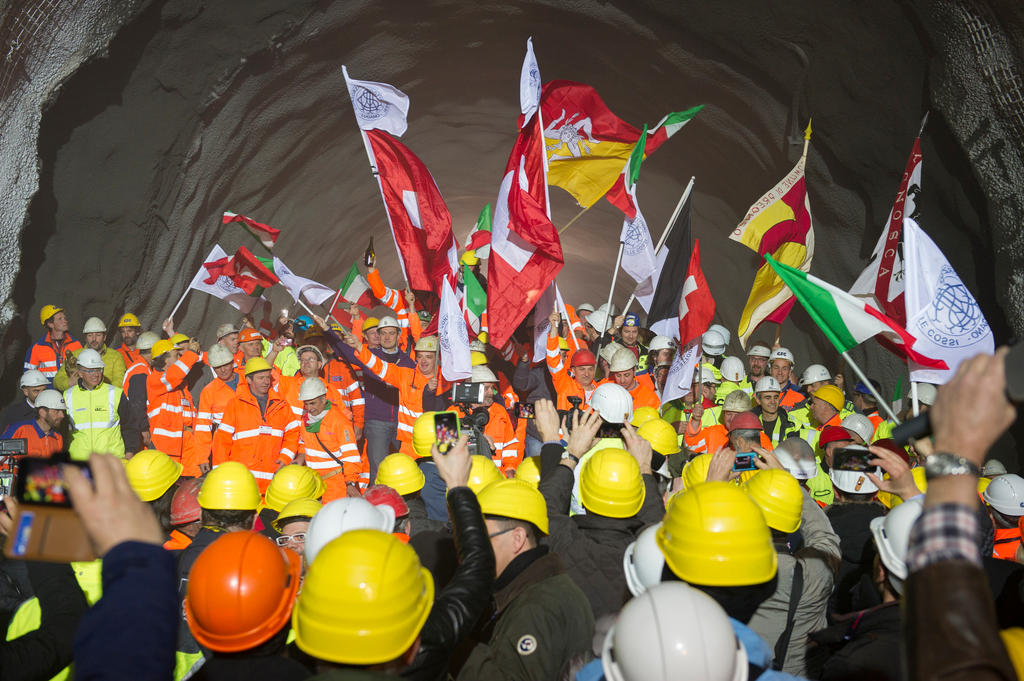

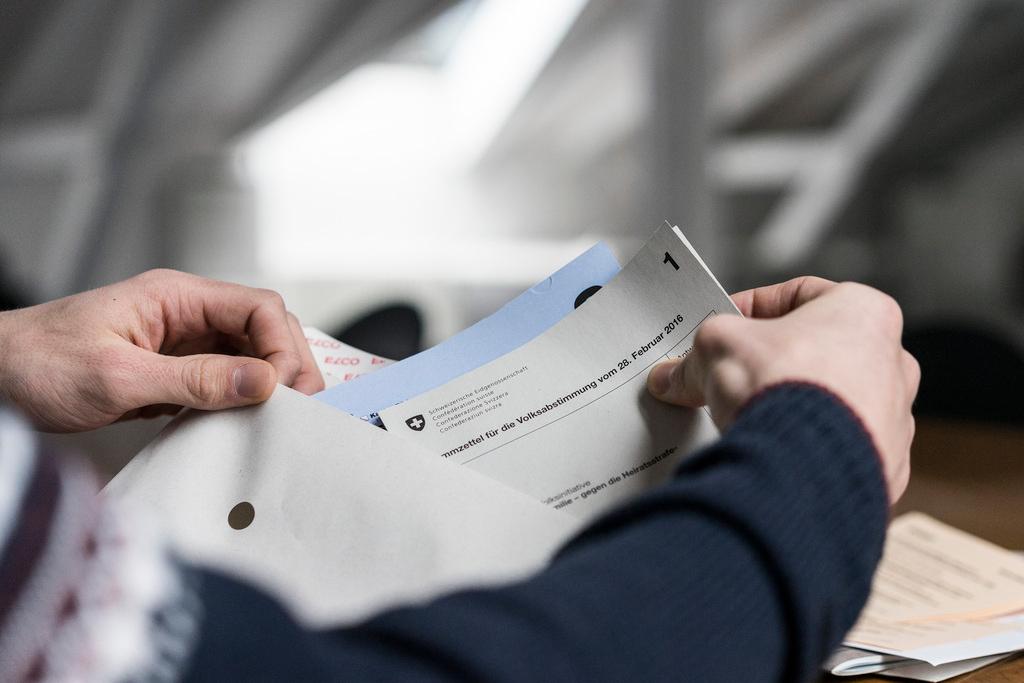
You can find an overview of ongoing debates with our journalists here . Please join us!
If you want to start a conversation about a topic raised in this article or want to report factual errors, email us at english@swissinfo.ch.